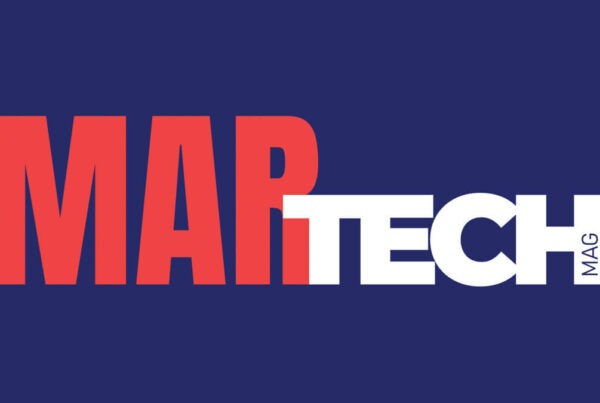In today’s fast-paced digital world, delivering a seamless customer experience across multiple touchpoints is critical. Whether customers are shopping online, browsing in-store, or interacting via social media, their experience should be consistent, personalized, and effortless. This is where Martech (Marketing Technology) comes into play, offering the tools and platforms needed to create a unified and integrated omnichannel strategy. In this article, we will explore how Martech is transforming the omnichannel experience and driving customer satisfaction and loyalty.
1. Understanding the Omnichannel Experience
What is Omnichannel Marketing?
Omnichannel marketing refers to the practice of providing a unified customer experience across all channels and touchpoints. Unlike multichannel marketing, which focuses on using different channels independently, omnichannel marketing ensures that customers receive a consistent message and service, regardless of whether they interact with a brand online, via mobile apps, in-store, or through social media platforms.
The Importance of a Seamless Experience
The goal of an omnichannel strategy is to create a seamless customer journey that allows for easy transitions between different channels. For example, a customer might browse a product on their mobile phone, add it to their online shopping cart, and then complete the purchase in-store without any friction. Achieving this requires the integration of various tools and platforms, which is where Martech plays a crucial role.
2. Key Martech Tools for Omnichannel Integration
1. Customer Relationship Management (CRM) Systems
CRM systems are central to managing customer interactions and data across all channels. Platforms like Salesforce and HubSpot enable businesses to track customer behavior, preferences, and interactions, whether they occur online or offline. This data is then used to create a 360-degree view of the customer, allowing businesses to deliver more personalized and relevant experiences. CRM systems also allow for effective communication across all channels, ensuring that messages are consistent and timely.
2. Marketing Automation Platforms
Marketing automation platforms like Marketo and Mailchimp help businesses automate their marketing efforts across multiple channels. These platforms allow brands to send personalized messages, run email campaigns, manage social media posts, and even track customer behavior in real time. By automating these processes, businesses can ensure that their customers receive the right message at the right time, regardless of the channel they use to interact with the brand.
3. Data Management Platforms (DMPs)
Data Management Platforms (DMPs) like Oracle BlueKai help businesses collect, organize, and analyze customer data from various sources, including website interactions, social media, email, and in-store behavior. By integrating this data, businesses can create more accurate customer profiles and deliver targeted marketing campaigns that span multiple channels. DMPs ensure that the messaging and experience are cohesive, which is essential for a successful omnichannel strategy.
3. How Martech Enhances the Omnichannel Experience
1. Personalization at Scale
One of the key benefits of Martech in omnichannel marketing is the ability to deliver personalized experiences at scale. By collecting and analyzing customer data across all touchpoints, brands can tailor their messaging, offers, and recommendations to individual customers. For instance, if a customer abandons a shopping cart on their mobile device, the brand can send a personalized email or SMS reminder with a discount to encourage the customer to complete their purchase. Personalization ensures that each customer feels valued and understood, which drives loyalty and conversion.
2. Consistent Customer Engagement
With Martech tools, businesses can ensure that customer engagement is consistent across all channels. Whether a customer is interacting with the brand via social media, email, or in-store, they should receive the same message and level of service. Martech enables businesses to schedule and synchronize content across platforms, allowing for seamless communication with customers no matter where they are in the customer journey.
3. Real-Time Data and Analytics
Real-time data and analytics play a crucial role in optimizing the omnichannel experience. Martech platforms allow businesses to track and analyze customer interactions as they happen, providing valuable insights into customer behavior. With this data, businesses can make immediate adjustments to their marketing strategies, ensuring that customers receive relevant and timely information. Real-time analytics also help identify pain points in the customer journey, allowing brands to resolve issues quickly and improve overall satisfaction.
4. The Role of AI and Machine Learning in Omnichannel Marketing
1. Predictive Analytics
AI and machine learning are becoming increasingly important in omnichannel marketing by enabling businesses to predict customer behavior and make data-driven decisions. Predictive analytics can help identify trends and forecast future customer actions, such as when they are most likely to make a purchase or abandon a cart. By leveraging AI, businesses can proactively engage customers with personalized offers and content, improving conversion rates and customer loyalty.
2. Chatbots and Virtual Assistants
AI-powered chatbots and virtual assistants are revolutionizing customer service across all channels. These tools can provide instant responses to customer inquiries, helping businesses maintain a high level of engagement and satisfaction. Whether a customer is interacting with a brand on social media, through a website, or in-store, chatbots offer a convenient way for them to get the information they need, improving the overall customer experience.
5. The Future of Martech and Omnichannel Marketing
1. Integration of Augmented Reality (AR) and Virtual Reality (VR)
The future of omnichannel marketing will likely see the integration of new technologies like augmented reality (AR) and virtual reality (VR). These technologies can provide customers with immersive, interactive experiences that span both the digital and physical worlds. For example, AR can enable customers to virtually try on products or see how furniture fits in their home, all while maintaining a seamless connection with the brand’s omnichannel strategy.
2. Enhanced AI Capabilities
As AI continues to evolve, it will play an even greater role in personalizing the omnichannel experience. Future Martech tools will likely include even more advanced machine learning algorithms that can analyze vast amounts of data in real time, offering highly targeted recommendations and messaging. This will create an even more personalized and efficient customer journey, further blurring the lines between online and offline experiences.
Conclusion
Martech is revolutionizing omnichannel marketing by providing the tools and technologies needed to create a seamless, personalized, and efficient customer experience across all touchpoints. By integrating CRM systems, marketing automation platforms, data management platforms, and AI-powered tools, businesses can deliver consistent messaging, real-time engagement, and highly targeted campaigns that drive customer loyalty and satisfaction. As the Martech landscape continues to evolve, the possibilities for enhancing the omnichannel experience are limitless, offering businesses even more opportunities to connect with customers in meaningful ways.




